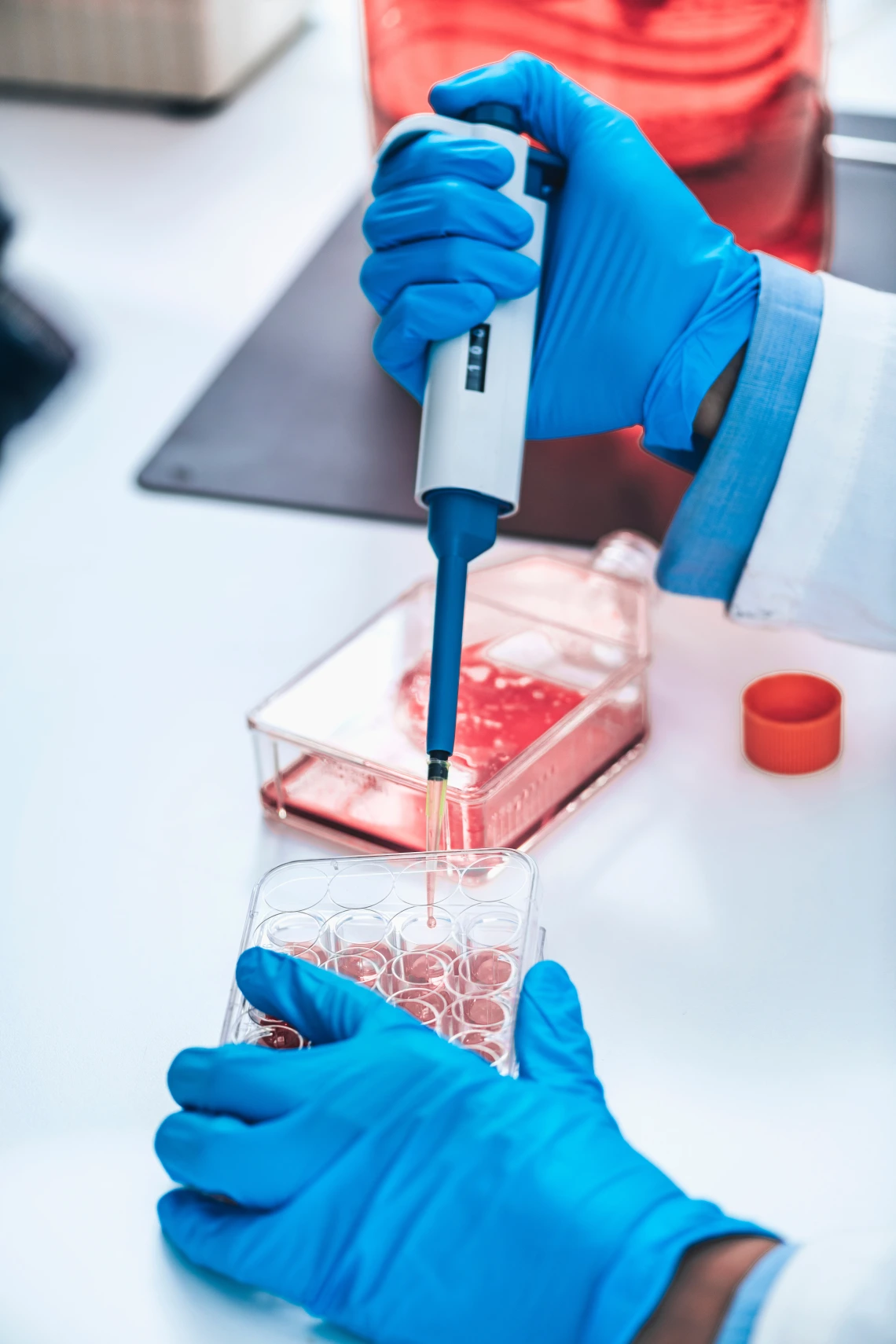Department of Neurology
Neurology Research
Our rapidly growing research programs are led by distinguished neurologists and neuroscientists. Our department conducts both laboratory and clinical research in epilepsy, Parkinson’s disease, healthy aging, Toxoplasma gondii, and the amygdala and emotions.
Basic and Translational Research
Distinguished neurologists and neuroscientists conduct laboratory and clinical research in epilepsy, stroke, movement disorders, Alzheimer’s disease, headache, neuromuscular diseases and neuroimmunology. We have a robust clinical trials program to test novel therapies for neurologic disorders. Together, these research areas provide training opportunities for medical students, residents and fellows, while advancing our understanding of the mechanisms of neurologic disease, improving our diagnostic and neuroimaging capabilities, and developing a wider array of neurotherapeutics.
For more than two decades, the Falk Lab has performed basic and translational science to test novel therapies for Parkinson’s disease (PD) treatment in three areas:
- Novel pharmacological treatments for L-DOPA-induced dyskinesias, a major side effect of PD treatment
- Testing novel neuroprotective (growth factor mediated) approaches for PD
- Development of blood-brain barrier penetrant glycopeptide drug candidates for the treatment of PD
Research from the Falk Lab has led to multiple patents, with one pharmacological treatment advancing to clinical trial.
The brain is the most powerful instrument of nature and is unmatched in its complexity. The suffering it can inflict is also unmatched in its severity. Relief or cure will be difficult to reach until we know how the brain works and how it shapes our mental lives. The research in the Gothard Lab is focused on the amygdala, a central knot in the tangle of brain circuits that control emotions. Abnormal activity in the amygdala plays a pivotal, and often even a causal role, in numerous mental disorders.
The main goal of the Hammer Lab is to understand the process of epileptogenesis and to identify novel therapies that reduce seizures and that improve the quality of life of children with epilepsy. The lab combines different technologies and approaches including genomics and functional studies.
Toxoplasma gondii is a protozoan parasite that is able to infect and persist in many warm-blooded hosts, from birds to humans. In some mammalian hosts, including humans and mice, Toxoplasma persists primarily in the central nervous system (CNS). Its ability to cause a lifelong infection in the CNS requires that the CNS and Toxoplasma co-evolve to avoid an overly exuberant CNS immune response that could destroy both the host (the CNS) and the microbe. By understanding the molecular mechanism that underlie this persistence, we hope to (1) determine new targets for treating chronic CNS toxoplasmosis, for which there is currently no therapy, and (2) define a new mechanism for driving and modulating the CNS immune response. Ultimately, the latter goal may help us develop treatments for diseases such as Alzheimer’s and stroke, in which increased CNS inflammation plays a significant role.
The study of stem cells, particularly in the context of the nervous system, has significant implications for understanding how the brain is built and works, as well as how it ages and responds to disease. Comprehending the regenerative potential of stem cells also has direct relevance in developing treatments for age-related neurological disease. The Madhavan Lab takes advantage of sophisticated stem cell technologies to advance knowledge on the fundamental biology of aging and neurodegeneration, and develop early diagnostics and therapeutics for especially Parkinson’s disease. Although focused on Parkinson’s disease, our work has broad implications across several other age-related neurological disorders.
The Ryan Lab is currently conducting studies investigating how life’s stressful experiences impact health and aging, and finding ways to promote healthy aging by studying each person as a unique individual instead of taking a “one-size-fits-all” approach when it comes to tactics and day-to-day behaviors.
The Sherman Lab investigates deep brain stimulation, gene therapy and cell-based therapy for Parkinson’s disease. Recently they have been focusing on designing viral vectors to modify the expression of voltage-gated channels in the brain.
Clinical Research Unit
The Neurology Clinical Research Unit serves as the central hub for all clinical research activities within the department. We oversee and coordinate an expanding portfolio of clinical trials, working closely with industry sponsors, academic collaborators and regulatory bodies to ensure the highest standards of research excellence. In addition to managing sponsored trials, the unit actively supports investigator-led studies, providing comprehensive infrastructure and guidance throughout the research process. Our mission is to advance the understanding and treatment of neurological disorders through innovative and ethically conducted clinical research.
Epilepsy
Movement Disorders
Clinical Trials

Our department brings strong expertise in clinical trials and is deeply engaged in innovative research aimed at discovering new and improved diagnostic tests and novel treatments for a broad spectrum of neurological disorders. With an expanding portfolio that spans early-phase drug discovery trials, large-scale national and multinational Phase 3 studies, and Phase 4 post-market registries, we offer patients access to therapies at the forefront of scientific advancement. Our physician-scientists lead studies across key areas including epilepsy, movement disorders, neuromuscular conditions and stroke.
Core Research Facility

Room 6228 Lab is a core facility open to neurology faculty, students and residents.
- Forma -80C Freezer Model 990
- New Brunswick Series 25D Incubator Shaker
- Sorvall RC-5B Refrigerated Superspeed Centrifuge
- Eppendorf Realplex2 Mastercycler
- Olympus BX51 Fluorescence microscope
- Leica MZ16FA Stereomicroscope
- Class II Biological Safety Hood
- Water jacketed CO2 Incubator
- Adjustable Low Temperature Incubator/Refrigerator
- Refrigerated Centrifuge
- Inverted Cell Culture Microscope
- Dual Chamber Water Bath






